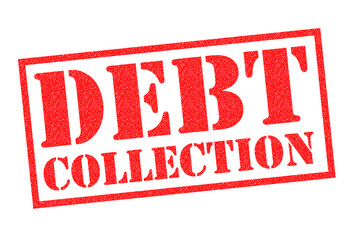Credit card growth might be lagging after COVID-19, but business is booming for private debt settlement companies. According to the Consumer Debt Relief Initiative, an industry-sponsored group settlement companies, private firms that negotiate compromised payment terms project that 10 million customers will use debt settlement services in 2021, a 75% increase over 2020.
Today’s (San Francisco) East Bay Times covers legislation to harness industry marketing efforts. AB-1405, filed in the California Legislature, passed through the first approval level for the state’s Senate Banking Committee and will likely resonate throughout the country. Also, expect to see something along the lines of the “Fair Debt Settlement Practices Act,” another consumer protection.
Debt settlement companies are for-profit or sometimes structured as not-for-profit debt relief companies. In contrast to Consumer Credit Counseling Services, a sixty-year-old non-profit governed by the National Foundation for Consumer Credit, debt settlement companies aggressively market their services to debt-stressed consumers. Companies in the space include American Debt Enders, CareOne, Curadebt, Debt Consolidation Care, and National Debt Relief.
Companies aggressively market their services, and from the industry group’s numbers, more than 25 million consumers have used private debt settlement services since 2014. Given high levels of unemployment and bulked-up consumer debt, there are likely some industry and consumer benefits. But, as the California bill explains, likely, vulnerable consumers are not aware of the long-term implications of using debt settlement companies, which often results in unexpected expenses, compromised payment options, and, quite often, tarnished credit records.
Debt settlement firms are not associated with lenders, so plans to solve consumer debt issues often go awry, as the East Bay Times explains.
- Among the economic winners is the booming debt settlement industry, composed mainly of online companies that promise to reduce personal debt by negotiating with banks and credit card companies on the customer’s behalf.
- But consumer advocates point out that these companies often prey on financial desperation and fail to warn customers of the potential consequences — like ending up in court.
And, confusion is often the order of the day.
- Desiree Nguyen Orth, director of the Consumer Justice Clinic at the East Bay Community Law Center, explained how most debt settlement companies work.
- Customers who enroll in a debt settlement plan make a monthly payment to a debt settlement fund. But, according to Nguyen Orth, debt settlement companies wait until the customer has defaulted on their debts — which can sometimes take up to six months — before they begin to negotiate with creditors.
- The defaults must occur before the negotiation process, but the debt settlement companies avoid explicitly saying this, Nguyen Orth said. Instead, debt settlement companies like ClearOne Advantage make money by charging customers a percentage of the total debt owed.
- Despite loan forbearance from the federal CARES Act and a statewide eviction moratorium that aims to protect Californians, personal debt such as credit cards and medical bills have been largely overlooked by lawmakers, leaving consumers exposed to potential predatory practices by alternative financial services.
The article offers the same advice I’d give a friend if asked what to do about a debt overload: call your creditor and work directly. Of course, it will be cheaper in the long run, and the debt settlement company would have to contact the creditor directly, anyway.
Overview provided by Brian Riley, Director, Credit Advisory Service at Mercator Advisory Group











